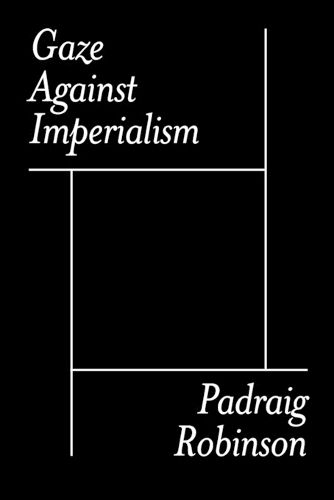Readings Newsletter
Become a Readings Member to make your shopping experience even easier.
Sign in or sign up for free!
You’re not far away from qualifying for FREE standard shipping within Australia
You’ve qualified for FREE standard shipping within Australia
The cart is loading…






This title is printed to order. This book may have been self-published. If so, we cannot guarantee the quality of the content. In the main most books will have gone through the editing process however some may not. We therefore suggest that you be aware of this before ordering this book. If in doubt check either the author or publisher’s details as we are unable to accept any returns unless they are faulty. Please contact us if you have any questions.
Gaze Against Imperialism by Padraig Robinson was written in the form of a rehearsal or index for an experimental film never intended to be made. This built-in absence defers to the imagination of the reader, who, far from filling a gap, becomes a potential producer (as overhearer). The poetic narrative begins in the Irish Queer Archive, National Library of Ireland in 2014, where Robinson initially tracked tensions between legal reform activism and the social economy of the emerging ‘gay scene’ in 1980s Ireland. The long form text A Quare Invisibility opens the book by rehearsing a route through the archive; ending with finding a photocopy of a photograph depicting a protest with a banner reading Gays Against Imperialism (Dublin 1982). Eight ‘scenes’ of recorded dialogue follow with University Librarian Cathal Kerrigan, co-founder of the small lobby group, Gays Against Imperialism. This present day oral history faces repetitions in a history too current to repeat so soon. Through a queer poetics, dissolving national borders, A Quare Invisibility is then the ‘ear’ of the book; a non-psychoanalytic ear, that is, overly aware of the violence of naming; the dual incarceration of speech; and ‘gay liberation’ in the framework of a merely liberated patriarchy. By articulating the homonym Gaze and Gays, the title not only refers to the generative misunderstandings in any public utterance, but also to the space between reading and listening.
$9.00 standard shipping within Australia
FREE standard shipping within Australia for orders over $100.00
Express & International shipping calculated at checkout
This title is printed to order. This book may have been self-published. If so, we cannot guarantee the quality of the content. In the main most books will have gone through the editing process however some may not. We therefore suggest that you be aware of this before ordering this book. If in doubt check either the author or publisher’s details as we are unable to accept any returns unless they are faulty. Please contact us if you have any questions.
Gaze Against Imperialism by Padraig Robinson was written in the form of a rehearsal or index for an experimental film never intended to be made. This built-in absence defers to the imagination of the reader, who, far from filling a gap, becomes a potential producer (as overhearer). The poetic narrative begins in the Irish Queer Archive, National Library of Ireland in 2014, where Robinson initially tracked tensions between legal reform activism and the social economy of the emerging ‘gay scene’ in 1980s Ireland. The long form text A Quare Invisibility opens the book by rehearsing a route through the archive; ending with finding a photocopy of a photograph depicting a protest with a banner reading Gays Against Imperialism (Dublin 1982). Eight ‘scenes’ of recorded dialogue follow with University Librarian Cathal Kerrigan, co-founder of the small lobby group, Gays Against Imperialism. This present day oral history faces repetitions in a history too current to repeat so soon. Through a queer poetics, dissolving national borders, A Quare Invisibility is then the ‘ear’ of the book; a non-psychoanalytic ear, that is, overly aware of the violence of naming; the dual incarceration of speech; and ‘gay liberation’ in the framework of a merely liberated patriarchy. By articulating the homonym Gaze and Gays, the title not only refers to the generative misunderstandings in any public utterance, but also to the space between reading and listening.